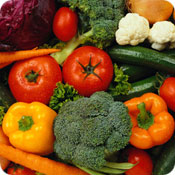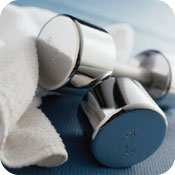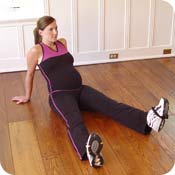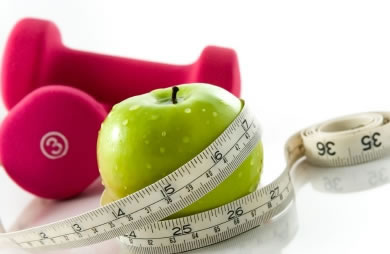 No meat in your diet. Can this be healthy during pregnancy? It sure can be. If you are a vegetarian and you eat dairy products and eggs, there is no reason why you cannot continue your diet throughout your pregnancy. Even if you are a vegan and exclude all dairy products and eggs from your diet, with careful attention and planning, you can meet most of your nutritional needs as well. Going meatless does not mean going nutrientless. Check out these nutrients of concern and find out what foods supply them.
No meat in your diet. Can this be healthy during pregnancy? It sure can be. If you are a vegetarian and you eat dairy products and eggs, there is no reason why you cannot continue your diet throughout your pregnancy. Even if you are a vegan and exclude all dairy products and eggs from your diet, with careful attention and planning, you can meet most of your nutritional needs as well. Going meatless does not mean going nutrientless. Check out these nutrients of concern and find out what foods supply them.
- PROTEIN: As long as calories are sufficient and your diet is varied, vegetarians can easily meet protein requirements. Protein is readily available in dairy products such as milk, cheese and yogurt. It is also in soybean products like soymilk, tofu, tempeh, and miso. Grains, beans, vegetables, nuts, and seeds, and eggs all provide protein as well.
- IRON: The best plant-based sources of this blood-enriching mineral are legumes, whole grains, enriched bread and cereals. Dried fruits, such as apricots, prunes, and raisins can also increase iron consumption. To help the body absorb the iron, eat a Vitamin C rich food along with the iron containing food. Vitamin C is found in citrus fruits, melons, tomatoes, green peppers, strawberries, and potatoes. Prepare your food in iron cookware to add additional iron to your diet.
- ZINC: Vegetarians can use the plant-based alternatives of legumes, nuts, wheat germ, tofu, egg yolks, hard cheeses, and brown rice to boost zinc intake.
- CALCIUM: Dairy products are the primary source of calcium in the diet. However vegans can get this mineral from calcium-fortified soymilk, calcium-fortified cereals, calcium-fortified juice, tofu, tempeh, textured vegetable protein (TVP), leafy green vegetables, broccoli, Chinese cabbage (bok choy), vegetarian baked beans, almond butter, and figs.
- VITAMIN D: Vitamin D is calcium's sidekick. It works with calcium to make bones and teeth strong. The best source of vitamin D is milk that has been fortified with the vitamin. However, humans can make their own supply of Vitamin D. Sunshine activates precursors of Vitamin D found under the skin. The activated vitamin them makes its way to kidney where it works. Vegans living in climates with little sunshine, those who wear sunscreen, or do not get much exposure to sunshine (15 minutes daily) should discuss taking a supplement with their healthcare provider.
- VITAMIN B12: The only reliable source of Vitamin B12 is found in animal foods, milk, and eggs. Research has shown that even lacto-ovo vegetarians may have low levels of Vitamin B12. Because B12 is essential for red blood cell development, vegetarians must make a conscious effort to consume more Vitamin B12. Eat foods fortified with Vitamin B12 or take a supplement.
Following is the daily food guide for vegetarians:
| FOOD GROUP |
SERVINGS |
SERVING SIZES |
| Grains: whole grain breads, cereals, brown rice, wheat germ, whole-wheat pasta, oatmeal |
6-11 |
1 slice of bread, ¾ cup dry cereal, ½ cup cooked cereal, ½ cup cooked brown rice or pasta, 1 Tbsp wheat germ |
| Fruits |
3-5 |
½ cup juice, ½ cup frozen or canned, 1 piece fresh, ¼ melon |
| Vegetables |
4-7 |
½ cup juice, ½ cup frozen or canned, 1 cup raw |
| Legumes: cooked dry beans, lentils, split peas, kidney beans, soybeans, chickpeas |
3-4 |
¾ cup cooked |
| Calcium-rich foods: nonfat or low-fat milk, calcium and vitamin fortified soy milk, low fat cheeses, low fat yogurt |
4 |
1 cup milk or yogurt, 11/2 ounce cheese |
| Seeds, nuts and nut butters |
1-2 |
1 ounce nuts or seeds (2-3 Tbsp), 1 Tbsp nut butter |
| Vitamin B12: milk, fortified soymilk, egg yolk, fermented soy foods like miso and tempeh |
1 or more |
1 cup milk, 1 egg yolk |
Continued ›
|
 No meat in your diet. Can this be healthy during pregnancy? It sure can be. If you are a vegetarian and you eat dairy products and eggs, there is no reason why you cannot continue your diet throughout your pregnancy. Even if you are a vegan and exclude all dairy products and eggs from your diet, with careful attention and planning, you can meet most of your nutritional needs as well. Going meatless does not mean going nutrientless. Check out these nutrients of concern and find out what foods supply them.
No meat in your diet. Can this be healthy during pregnancy? It sure can be. If you are a vegetarian and you eat dairy products and eggs, there is no reason why you cannot continue your diet throughout your pregnancy. Even if you are a vegan and exclude all dairy products and eggs from your diet, with careful attention and planning, you can meet most of your nutritional needs as well. Going meatless does not mean going nutrientless. Check out these nutrients of concern and find out what foods supply them.






Member Comments